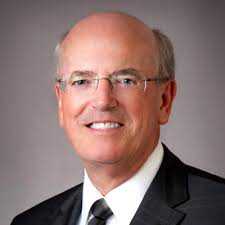The Practical Value of a Liberal Education
Topics

Today’s learners face a rapidly changing world that demands far different skills than were needed in the past. We also know much more about how student learning actually happens and what supports high-quality learning experiences. Our collective future depends on how well young people prepare for the challenges and opportunities of 21st-century life.
University of New England Provost James Koelbl argues that skills learned from a broad liberal education are linked to success in any career and in life.
Products of a broad liberal education are linked to success in career and life, and can be acquired in a variety of educational environments, both traditional and otherwise.
As I read about the ongoing conversation about the value of higher education, it seems to me that some people believe prospective college students and their parents have to make a choice between a quality, broad-based liberal education and a more career-oriented educational path. I think this either-or perspective misses the point.
I am a product of a Jesuit liberal education (high school and college). It has been my good fortune to have enjoyed a career that has spanned six universities, a non-profit professional association, and private clinical practice. I have worked and lived in a rural town of 300 residents and in a city of 4 million people. While some would argue that I couldn’t keep a job, I think my path is due in part to the values that were shared by my “liberal education” faculty along the way. Based on my own experiences, I believe strongly that a quality liberal education is absolutely critical to success in life, both personally and professionally. In addition, very few, if any, of the positions I’ve held were a result of some detailed, long-term life plan. Who in the world grows up thinking, “I want to be a university provost?”
There are many articles written about why students go to college; what parents want their children to get from the college experience; and what employers want from college graduates. For example, the top issues of importance in a recent survey of parents by Noodle Education were 1) a safe environment; 2) acquisition of real world marketable skills; 3) a good fit for my son/daughter; 4) a first-rate academic experience; 5) affordability; 6) quality of career placement services; and 7) job placement rate. As a parent of six children and eight grandchildren, my summary of some of these issues is, “We’d like to get our children off our payroll!”
Students feel a lot of pressure—what am I going to study? What am I going to do for the rest of my life? How am I going to make a living? What if I make the wrong choice about a field of study or a career?
Young men and women can make themselves a bit crazy trying to sort it all out. The good news is that there are things that people can learn in every program/every major/every experience they have inside and outside a classroom that will be valuable no matter what they do or where they go in life.
There are certain skills that will ensure success in any endeavor:
- The ability to think clearly and critically about complex problems;
- The ability to gather and analyze information;
- The ability to be creative and innovative in solving problems;
- The ability to make decisions based upon available evidence;
- The ability to understand science and technology and how these subjects are used in real-world settings;
- The ability to understand and manage numbers and statistics;
- The ability to communicate clearly—both verbally and in writing;
- The ability to work in teams and to apply knowledge and skills in new settings;
- Understanding the importance of service to others;
- Appreciating your place in an increasingly global society; and
- Truly having a strong sense of ethics and integrity.
All of these things are products of a broad liberal education, all of them are linked to success in any career and in life, and all of these skills can be acquired in a variety of educational environments, both traditional and otherwise. They can also be acquired at any age, so it’s never too late.
I heard a talk a while ago from a business leader who is in a role for which he never really planned. His life and career took a number of unanticipated turns, but looking back he saw that he learned valuable lessons every step along the way, especially from experiences that at the time did not appear to be working out so well. His advice—stay open to learning new things and to having new experiences, and if you do, your passion will find you.
The lesson I’ve learned is that it’s important to put yourself in uncomfortable positions. In order to grow, you need to stretch yourself. You need to keep your mind open to new possibilities and new experiences. You should develop the skill of actively listening to people you meet, to relish the opportunity to learn from everyone and anyone. I promise you will find that everything you learn and every experience you have will turn out to be valuable in ways you cannot imagine! If you’re worried about your future, go ahead and chart your course, but be willing to adjust your sails.
Success over a lifetime is made up of successful days, and successful days are made up of successful moments. Stay in the present, and soak up each and everything you can every moment of every day. Remember to be mindful of the words of Sydney J. Harris, “The primary purpose of a liberal education is to make one’s mind a pleasant place in which to spend one’s time.”
I would add that the primary job of education is not necessarily to prepare a student for a particular future—it is the job of education to prepare a student for whatever the future holds.




